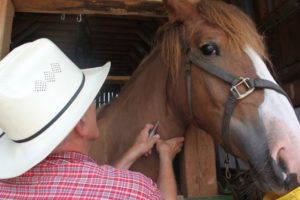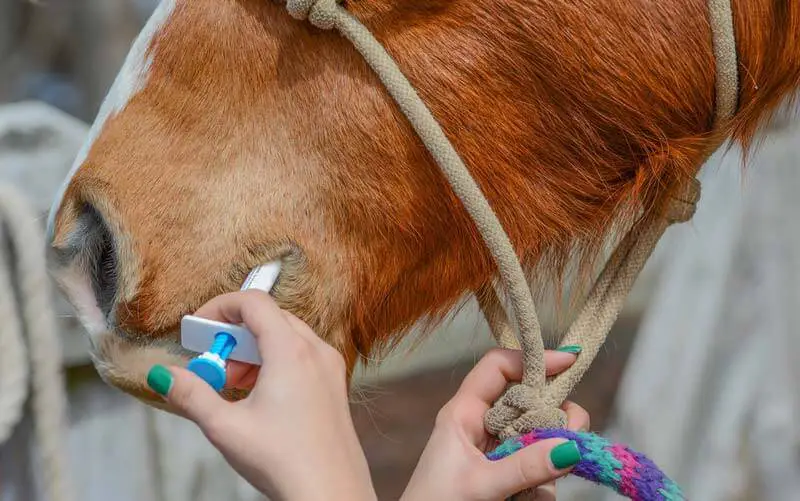Can I vaccinate my own horse?

Above all, every horse owner should vaccinate their horse — even if they never leave your property or interact with other horses. While we recommend a veterinarian administers all vaccines, let’s examine the pro’s and con’s of vaccinating your own horse yourself.
Yes, Vaccinate Your Own Horse
Before we delve into vaccinating your own horse, the most important consideration is making the choice to vaccinate. No horse is immune from the debilitating and potentially life-threatening diseases that can be prevented by vaccination.
While some horse owners may argue “My horse never leaves my property” or “My horse doesn’t come into contact with other horses”, the reality is that diseases, such as Tetanus, can still occur — without vaccination. Tetanus lives in the soil and environment, so all horses are at risk unless vaccinated.
While we, at Exclusively Equine, recommend a veterinarian administers all vaccines, there’s a few important things to remember if you decide to vaccinate your own horses, including:
- Only use a reputable, trusted product — recommended by your veterinarian
- Ensure the vaccine has been properly stored, with no signs of damage or tampering the use by date is valid.
- Learn how to vaccinate your horse safely and efficiently
- Follow the advice of your veterinarian when making decisions regarding your horse’s health
No, Don’t Vaccinate Your Own Horse
However, even if you’re competent at administering vaccines, the choice to vaccinate your own horses without the assistance of a veterinarian is something we simply don’t recommend — and here’s why.
- Your veterinarian is the most qualified person to make decisions regarding your horse’s health care, including choosing the most suitable vaccine and administering it correctly.
- Vaccines can be dangerous if given at the wrong temperature, incorrect dose or in the wrong location. Your veterinarian has been trained to ensure the vaccine is administered safely.
- A vaccine may trigger an unexpected immune response in your horse, which can place both you and your horse at risk. Your veterinarian is able to handle such events with ease.
- Many vaccine manufacturers simply won’t support self-administration of their products. As such, they won’t accept liability if the vaccine isn’t administered by a qualified veterinarian.
- Finally, if you plan to transport or compete your horse and require a health certificate, your veterinarian may not be inclined to issue one as they haven’t administered the vaccine themselves.
The choice to vaccinate — and how to vaccinate — is in your hands.



